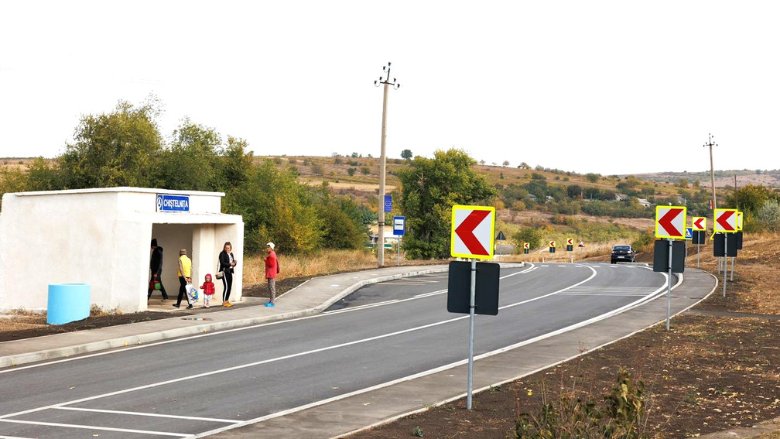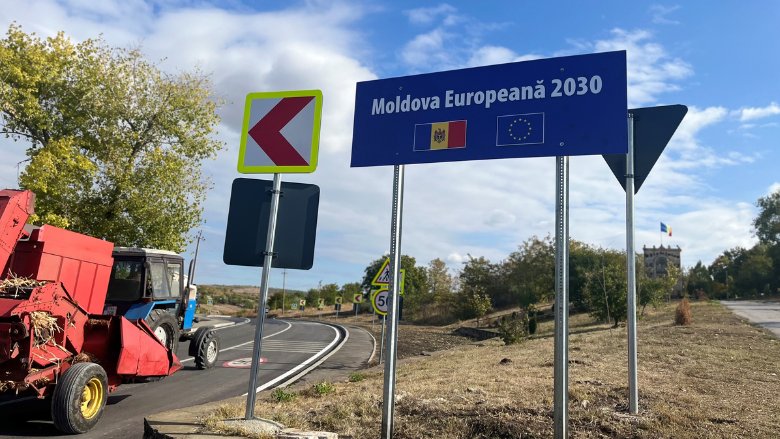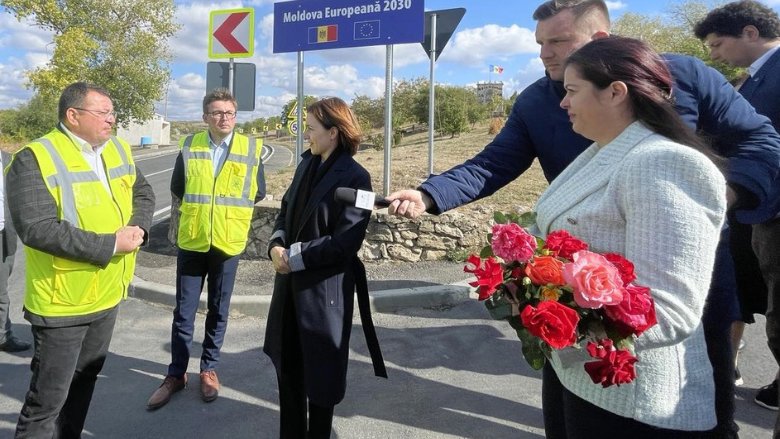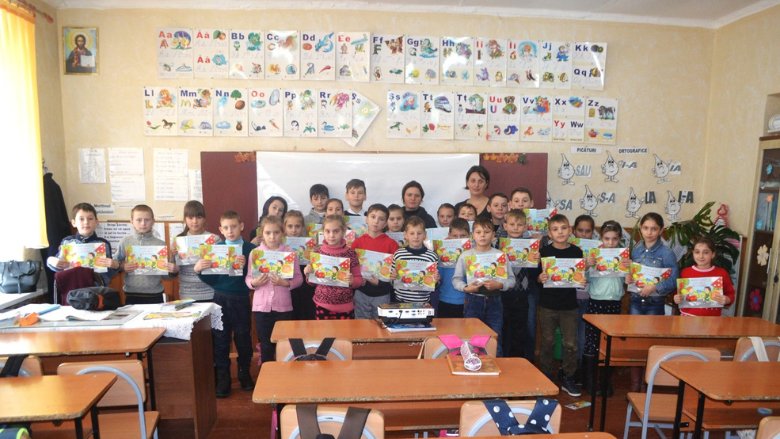For rural communities, development starts with a road. Building and improving roads for these communities is essential for poverty alleviation—providing access to markets, schools, and health facilities for those who need it most.
This fall, the World Bank, together with the Government of Moldova, marked the successful completion of the Local Roads Improvement Project (LRIP), supporting the rehabilitation of 150 km of priority local roads around the country. Approved in 2015, the project sought to enhance local road management as well as provide safe and sustainable local road accessibility along select corridors that have long been neglected. These roads, which have not been rehabilitated for over 30 years, serve 41 communities across Moldova.
Maia Sandu, President of Moldova, participated in a ceremony celebrating this achievement with people from communities that benefited from LRIP.
“Today, we open a renovated road sector of 36.5 km, which crosses two districts, Rezina and Telenești, connects eight villages, and is used by over 15,000 inhabitants. People have been waiting for the rehabilitation of this sector for over 10 years. European roads imply a safer infrastructure, increased trade, and enhanced connectivity,” Ms. Sandu told event attendees.
Local roads are essential for rural Moldovans’ livelihoods: farmers need roads to sustainably market their products, the unemployed to find jobs off-farm, children, and teachers to travel to school, and the elderly to visit healthcare centers. Similarly, roads can trigger market exchange mechanisms and local economic growth in rural communities. And improving roads can lead to lower transport costs and greater accessibility, which helps stimulate investment in tourism and real estate development.
Impact for Communities
LRIP has had significant impact on employment in rural areas, creating over 1,000 temporary jobs as the project was implemented. Moreover, LRIP significantly increased the capacity of the local construction industry to perform high quality civil works and invest in new, modern equipment.
Beyond the local economy, the project has improved public safety by piloting a program to improve road safety in beneficiary communities through investments, infrastructure, and awareness campaigns. Sidewalks were non-existent in most of these villages, and LRIP funded the design and construction of 69 km of safe walkways in rural areas. And to ensure these critical investments in infrastructure are properly used and maintained, the country has put in place reforms to enhance Moldova’s road asset management system and modernize road maintenance practices.
“I often need to go to the post office. Now I’m walking safely using the new sidewalk which didn’t exist before. I don’t fear being hit by a car, while in the past, I had to walk on the roadway and watch every passing vehicle,” says Liuba Cucu from Cruglic village.
Post-project survey results also registered public appreciation for LRIP’s work, highlighting significant improvement in public satisfaction with the conditions of the rehabilitated roads and road safety, particularly with road signs, pedestrian crossings, drainage systems, and bus stops. People expressed increased comfort in traveling, time savings, lower costs with operating vehicles, and improved accessibility to farmland, schools, and medical facilities.
“Now the road is very good! We’ve been waiting for so long to see this happening. With roads like this, the cars will get damaged less, for sure!” said Stefan Rusu, who lives in Peciste village.
Moreover, the percentage of respondents reporting that they use the road to access job opportunities doubled after project completion. Road improvements resulted in respondents accepting jobs further away from home, which suggests road improvements have tangibly improved rural communities—boosting opportunities for employment, education, and more.
The World Bank remains committed to further supporting sustainable infrastructure development and critical sector reforms in Moldova, to make a difference in people’s lives and support the country on its path towards enhanced EU integration.
“I am a strong believer in a comprehensive approach to infrastructure development: investments in physical infrastructure must be accompanied by policy, institutional and capacity improvements to deliver the best results for the population,” says Inguna Dobraja, World Bank Country Manager for Moldova. “And the World Bank stands ready to further support the Government in this journey. And as we look at the road ahead, let us remember the following: If you want to go quickly, go alone. If you want to go far, let us go together."




